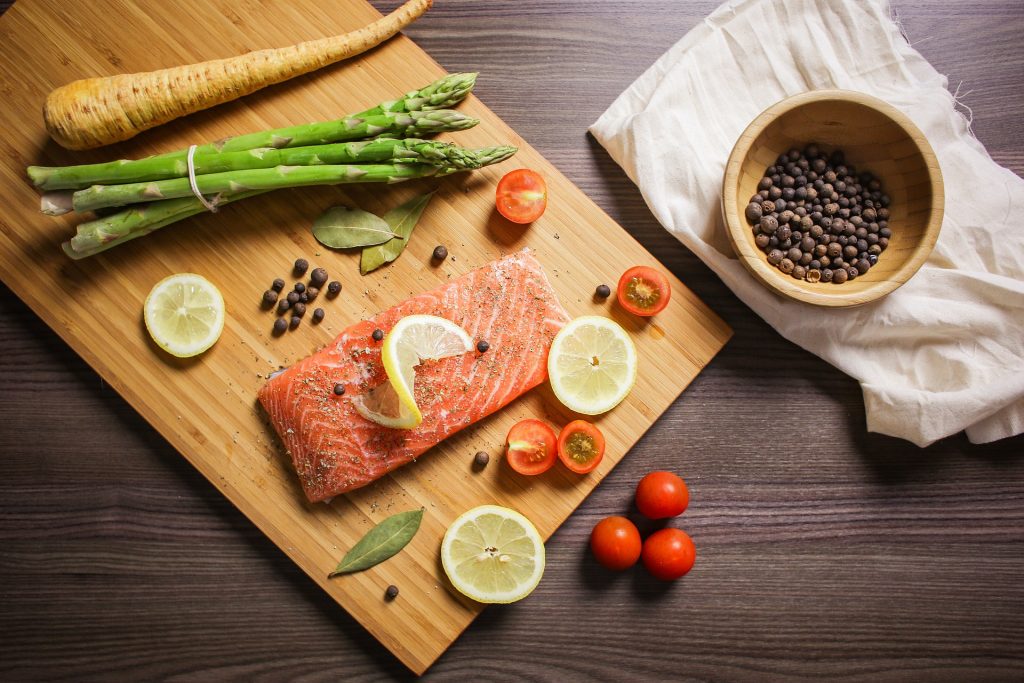Cancer Risk Factors
There are many risk factors for cancer. Some risk factors may be unavoidable, such as genetics or environmental factors. However, some risk factors are avoidable, such as smoking, consumption of certain food-related compounds, and being overweight or obese.

Risk factors, whether avoidable or unavoidable, lead to the production of free radicals in the body, which can lead to cell damage and potentially cancer. However, research shows that staying physically active and making healthful food choices can help prevent damage to cells. Additionally, research shows that maintaining a healthy weight can also help to reduce the risk of cancer.
Tips for Cancer Prevention

- Limit saturated fat, processed meat, and red meat – Research suggests that these factors may raise the risk for cancer. The World Health Organization classifies processed meats as carcinogenic and red meat as probably carcinogenic.
- Tips to reduce processed meat and red meat
- Use meat as a side dish, in small portions.
- Consume lean meats like fish and skinless poultry.
- Consume plant-based protein sources like beans and legumes.
- Tips to reduce saturated fat:
- Use vegetable oils instead of solid fats.
- Purchase fat-free or low-fat dairy products.
- Trim fat and skin from meat.
- Limit fried foods.
- Pay attention to fat content on food labels.
- Tips to reduce processed meat and red meat
- Decrease salt-cured and charred foods (smoked, charcoal, gas-broiled, high-temperature frying or broiling) – Because of the way they are prepared, these foods can contain cancer-causing properties which may lead to an increased risk for cancer, especially if eaten in large amounts.
- Tips to reduce charred foods.
- Cover the grill with aluminum foil to protect food from smoke and fire.
- Cook meat only until done, avoid charring.
- Remove charred portions before eating.
- Pre-cook foods in a microwave to decrease grilling time.
- Tips to reduce charred foods.
- Increase fruits, vegetables, legumes, and whole grains– Foods of plant origin are often naturally low in calories, rich in dietary fiber, and contain cancer-preventing compounds known as phytochemicals or antioxidants. The dietary fiber found in plant foods helps move food through the digestive tract more quickly, which may help reduce the risk for cancer. Fruits and vegetables (especially those with bright colors) contain antioxidants and other phytochemicals that help protect the body from cell damage, aiding in cancer prevention.
- Limit alcoholic beverages– Drinking more than one alcoholic beverage per day for women and more than two for men increases the risk for many types of cancer. Though the exact relationship between alcohol and cancer is still unclear, the amount of alcohol (not the type) is thought to influence the risk for cancer. All alcohol should be consumed in moderate amounts.
- Be physically active– Regular physical activity is important for healthy weight maintenance and cancer prevention. It is important to engage in moderate physical activity at least five days a week, 30 minutes a day. Keeping your whole body active keeps it strong and in healthy condition, to help prevent disease and cell damage.
For more information, check out Diet and Cancer Prevention: https://extension.colostate.edu/topic-areas/nutrition-food-safety-health/diet-and-cancer-prevention-9-313/.
Did You Know?

The World Cancer Research Fund estimates that about one out of every five cancer diagnoses are attributed to a poor diet, physical inactivity, excessive alcohol consumption, and/or being overweight or obese.
These factors are linked to an increased risk for many cancers such as breast, colon and rectum, endometrium, esophagus, kidney, and pancreatic cancers.

